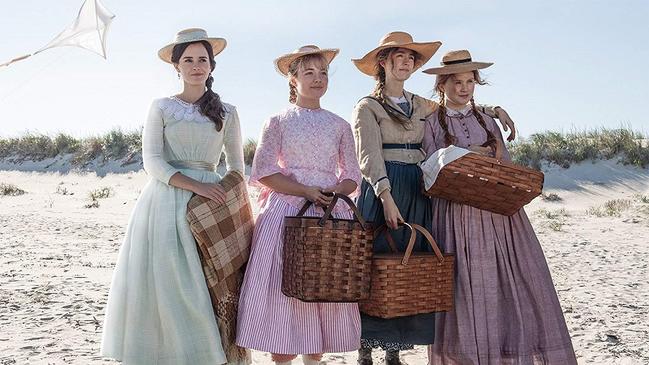Fight for the big screen: is the show over for cinemas?
Are we now so accustomed to watching movies at home that we’ll be reluctant to venture out to multiplexes ever again? Despite a difficult year, the future looks bright.

For cinemagoers, 2020 began promisingly. Quality entertainments like The Gentlemen, 1917 and Little Women got the year off to a good start, while cinemas specialising in foreign language and independent fare were very well served by the award-winning Parasite (which has had exceptional success in this country), The Truth and Portrait of a Lady on Fire. These successes more than made up for the critical and commercial failures of films such as Cats and True Story of the Kelly Gang.
But, as it did everywhere else, the pandemic cast a massive blight over the film industry. Cinemas, especially in Victoria, were closed for long periods of time and are still not allowed to sell seats to capacity. For small cinemas, this has proved exceptionally difficult to cope with.
Even more disastrous has been the delays and cancellations of major film releases, brought about by factors outside the control of Australian cinemas and distributors. Because cinemas in the US and most of Europe have also been closed for long periods of time, distributors have made the difficult decision to postpone scheduled high-profile releases. Disney’s live-action Mulan, eagerly awaited by cinemas in March, instead launched on the Disney Channel — for a premium price. This was just the first of many potential blockbusters to be diverted from cinemas to the rival streaming channels. It was great for Netflix, Stan and the other streamers, and for people who were forced to enjoy their entertainment at home; and it was a boom for the sales of large-size TVs and sound equipment. But when Steven Spielberg’s eagerly awaited remake of the musical West Side Story was postponed from Christmas 2020 by a whole year to Christmas 2021, cinema owners around the world shuddered.

One of the concerns is piracy. Traditionally, the major producers/distributors (Warner Bros, Disney, 20th Century Fox, Paramount, Sony) have opened their films worldwide on the same date to minimise the possibility of illegal copying. This concern has undoubtedly been the driving force in the decision to postpone, or deflect to a streaming service, a “big” film rather than to open it outside America first — and Australian cinemas have suffered from this policy.
Will cinemas survive? Will audiences have become so accustomed to watching movies at home that they’ll be reluctant to venture out to the multiplexes, especially if there are lingering fears that, until a vaccination is widely available, crowded places are potentially dangerous? When Warner Bros made an exception and finally allowed Christopher Nolan’s long-delayed Tenet to open in some countries, including Australia, in August — before it opened in America — the results weren’t as spectacular as some in the industry had hoped. This might have been because the film was seen by many as a disappointment, a confusing affair and not the best attraction to drag audiences back into cinemas in large numbers.

Fortunately for many cinemas, some independent distributors stepped up to fill the gaps left by the “majors”. Smaller companies like Madman, Potential, Vendetta, Umbrella and the New Zealand based Rialto, continued to release films into the local market, providing a lifeline to struggling cinemas. Some of these “smaller” films have been very successful, among them the romantic Love Sarah, La Belle Epoque, Les Miserables and the Liam Neeson thriller Honest Thief (all Rialto releases). Palace, the company that operates quality cinemas all over the country, has also forged ahead with significant foreign-language releases, including A White White Day from Iceland, Corpus Christi from Poland and The Translators from France. Larger distributors, like Universal and Roadshow, have also released some of their more modest titles into cinemas.
Australian films have also helped fill the gaps, including the award-winning Babyteeth, the very powerful A Lion Returns and the excellent documentary Brazen Hussies. And Netflix, arch-rival of the cinemas, has allowed short theatrical windows of some of its higher-profile productions, most notably Ben Wheatley’s remake of Rebecca, Spike Lee’s exhilarating David Byrne musical American Utopia and David Fincher’s excellent Mank.
What is likely to happen next? As with everything else, the future of cinemas may depend on a vaccine but in the short term it’s to be hoped that audiences will be lured back to the movies by the promise of top-quality productions they won’t be able to see at home. Forthcoming — though also delayed — Australian releases like The Dry and High Ground have a lot riding on them, while Wonder Woman 1984, the biggest of the Christmas releases, should answer a lot of these questions.




To join the conversation, please log in. Don't have an account? Register
Join the conversation, you are commenting as Logout